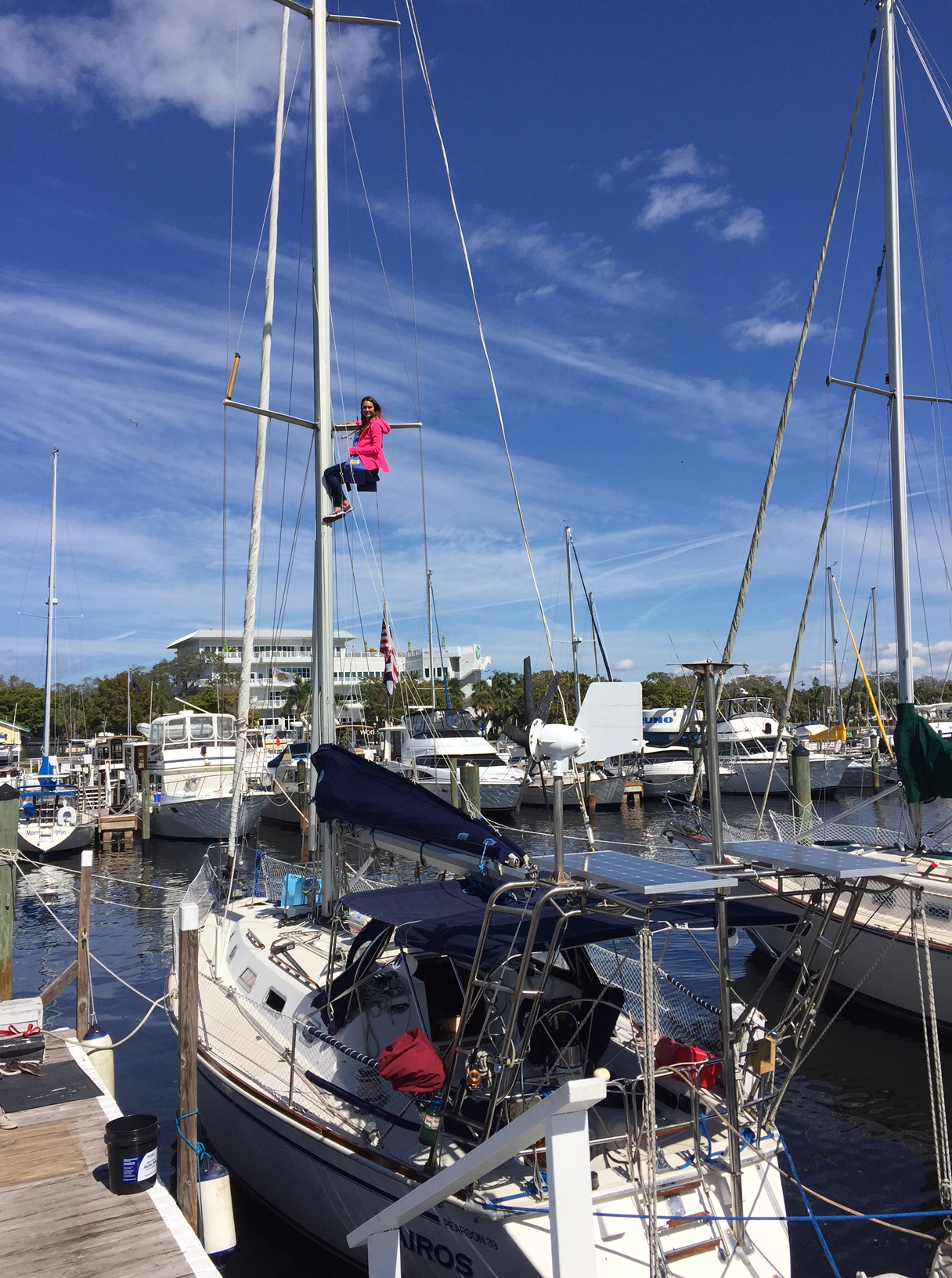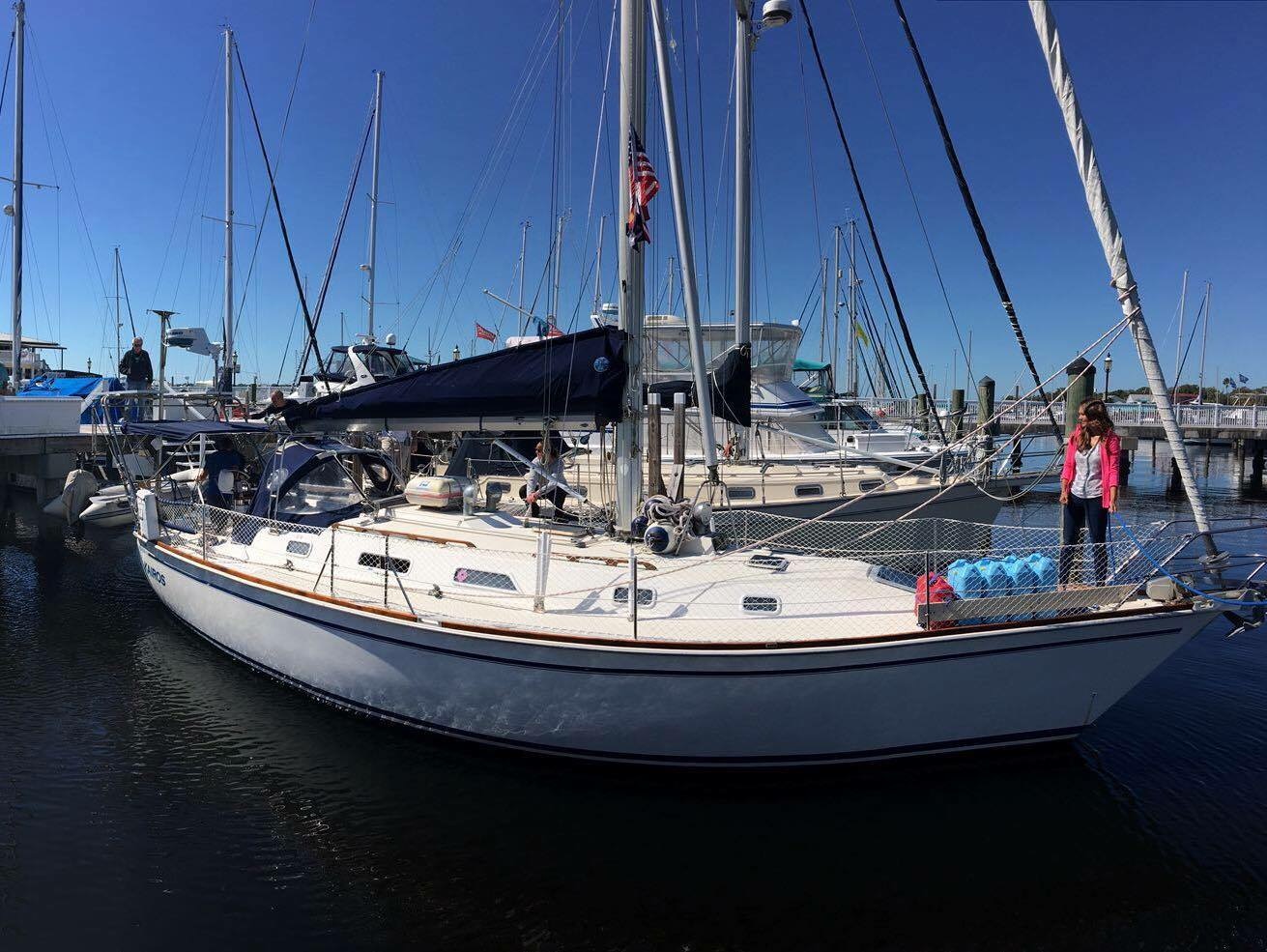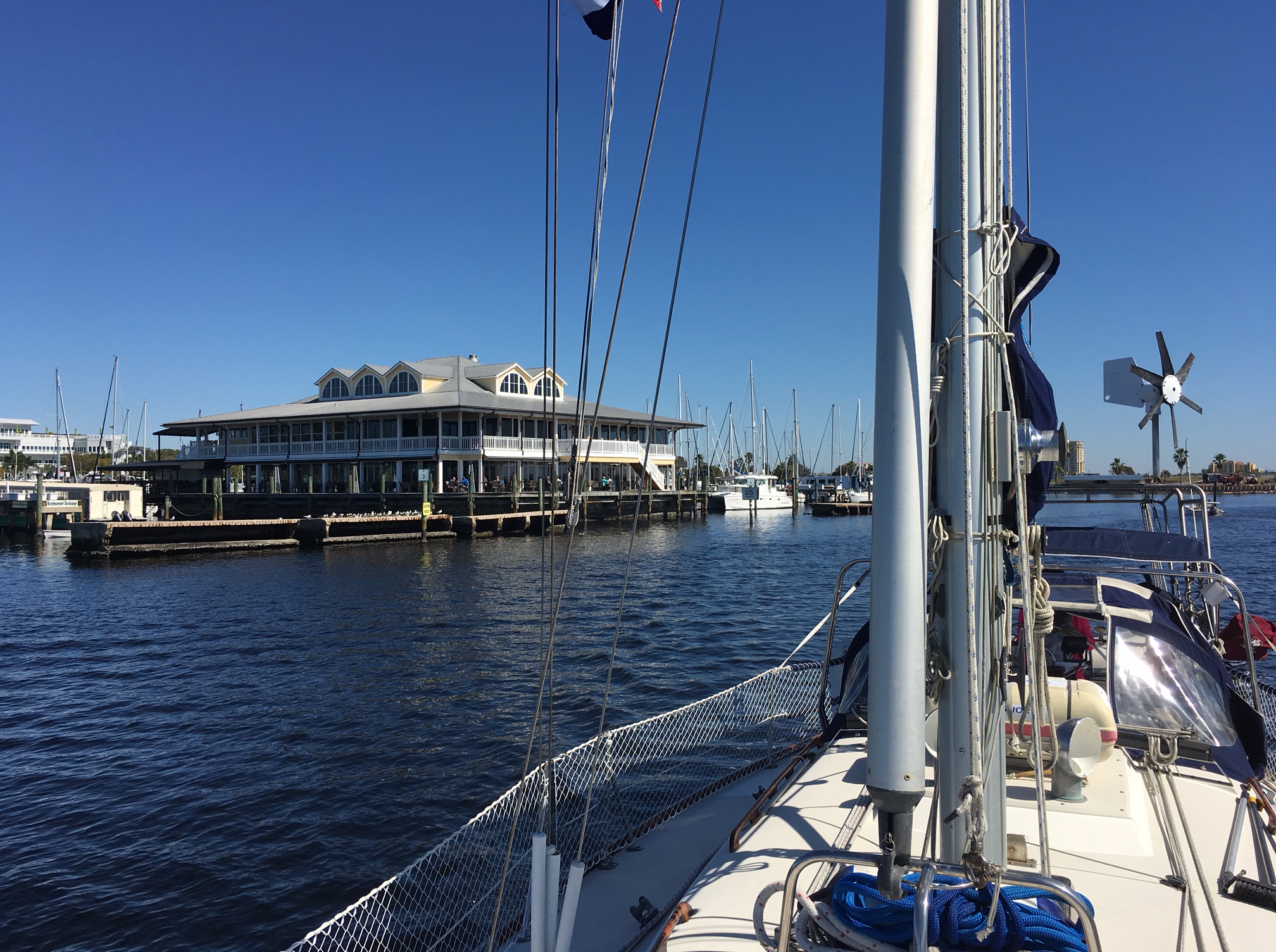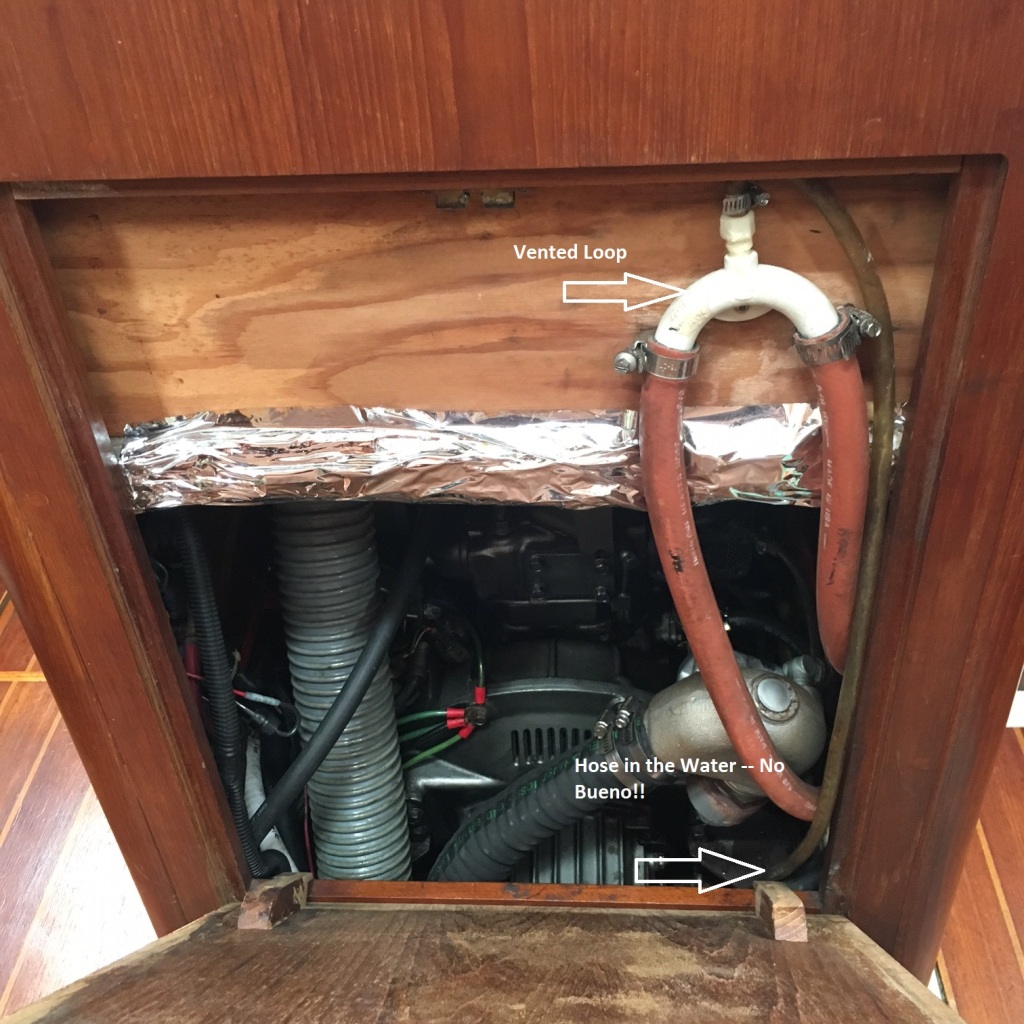
When Rob removed the air inlet filter on the engine to give himself more room to swap out the alternator, about 2 cups of water came pouring out. We do not claim to be diesel engine experts, but as soon as we heard the rushing sound of water exiting our engine, we looked at each other with terrified eyes and started cursing. Our engine was flooded with water. How could this have happened? What’s going on? We just ran the engine yesterday during our final sailing lesson.
Upon further inspection, we realized that the hose from the vented loop on the engine exhausted system was submerged under water in our bilge. Let me explain why this is really really bad. During normal operation, the engine exhaust gases are cooled by injecting raw sea water. The cooled exhaust gases and water then leave the boat through a vent on the transom. Because our engine is below waterline, it is important that we have a vented loop installed on the raw water hose. Otherwise, after the water pump is shut off, a siphon will form and water will continue to flow and flood the engine. If undetected this could even sink the boat. With a vented loop installed, air enters the water hose when the pump is shut off and prevents a siphon from ever forming.
Because our air vent was submerged in water, our vented loop did not let air enter the water hose and we created a siphon that flooded our engine. Well that’s an easy enough problem to fix. We simply cut the air hose to ensure that it would never be under water again. But now we had a flooded engine to deal with.
A diesel engine uses pistons and rods to compress air. Because water is incompressible, if you start an engine that is flooded with water, then you could easily break those pistons and rods. We also can’t let sea water sit in the engine for too long. It is extremely corrosive and will destroy an engine in a couple of days. Our sailing budget does not include $15,000 for a new engine, so needless to say, we were panicked. We had just spent the last two months working extremely hard to fix up the boat for cruising and we were about to lose our engine the DAY BEFORE we set sail. The timing of our misfortune was almost humorous; I didn’t know whether to laugh or cry at our situation. So I did a little of both.
We were able to get a hold of Rick at RNR Marine and he walked us through how to safely remove water from our engine using the decompression levers and a shop vac. It took us all day, but we were finally able to remove the water and start the engine. The next day we had the oil changed just in case it too was contaminated with water. We dodged a big bullet! Thankfully Rob removed the air filter and we discovered the issue before trying to start the engine. Thankfully we found the issue before it could cause serious damage. It was a huge scare, but turned out to be another great learning experience. We are now intimately familiar with our engine.
Afterwards Rob was able to swap out the alternator, which did take less than an hour. With our engine water free and the alternator charging our batteries, we left the marina around noon on Thursday, Feb 11th. Only one day later than expected. Not too bad all things considered.







If you don’t get jobs as chem e.engineers when you return, you can work in a boat repair shop. Job security!
Grand mom.
We are certainly building a new skill set!
If you don’t get jobs as chem e.engineers when you return, you can work in a boat repair shop. Job security!
Grand mom.
We are certainly building a new skill set!
Yey! You are officially CRUISERS!
Doesn’t if feel good to leave the dock and take the lines with you?
Sorry to hear of your engine woes but nice job and good timing on the catch.
With best regards,
Mark
Skipper
Sailing Yacht: Cream Puff
http://www.creampuff.us
Yey! You are officially CRUISERS!
Doesn’t if feel good to leave the dock and take the lines with you?
Sorry to hear of your engine woes but nice job and good timing on the catch.
With best regards,
Mark
Skipper
Sailing Yacht: Cream Puff
http://www.creampuff.us
Nice work on the repair. You know well the combination of good and bad luck that accompanies every issue with a boat. We once had an engine cooling water hose blow off on Steamboat Lake in stormy weather. The boat was flooding and sinking and we couldn’t figure out why. Plus we had a couple of young kids on the boat. Plus it was Memorial Day weekend, so the water was very cold. That was the bad luck. The good luck was that the wind blew the stricken boat towards one of the several boat ramps around the lake. Wrestling a flooded boat onto the trailer in chest deep water and 2ft waves was an adventure that will live long in the memory.
Wow…that seems like it must have been a pretty rough day. I’m glad you can find the silver lining!
Nice work on the repair. You know well the combination of good and bad luck that accompanies every issue with a boat. We once had an engine cooling water hose blow off on Steamboat Lake in stormy weather. The boat was flooding and sinking and we couldn’t figure out why. Plus we had a couple of young kids on the boat. Plus it was Memorial Day weekend, so the water was very cold. That was the bad luck. The good luck was that the wind blew the stricken boat towards one of the several boat ramps around the lake. Wrestling a flooded boat onto the trailer in chest deep water and 2ft waves was an adventure that will live long in the memory.
Wow…that seems like it must have been a pretty rough day. I’m glad you can find the silver lining!